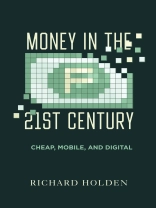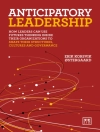An economist examines three modern forces that have redefined what ‚money‘ means, who controls it, and what the future of finance might look like.
Money is increasingly cheap, digital, and mobile. In
Money in the Twenty-First Century, economist Richard Holden examines the virtues and risks of low interest rates, mobile money, and cryptocurrencies, and explains how these three elemental forces will continue to play out—in our wallets, on the blockchain, and throughout major economies—in the decades to come.
Holden weaves in the stories of three people who have exerted massive influence over the future of modern money: US treasury secretary Janet Yellen, Ethereum cofounder Vitalik Buterin, and Raghuram Rajan, former governor of the Reserve Bank of India and chief economist at the International Monetary Fund. Moving from micro to macro, Holden investigates the infrastructure that permits digital transactions, the currencies that underpin them, the race for control of those currencies, shifts in policy and the international monetary system, and the impact on our politics of money in the digital age. Ultimately,
Money in the Twenty-First Century asks if governments can keep these three tectonic powers of low interest rates, mobile money, and decentralized finance under control.
Inhaltsverzeichnis
Contents
Prologue
1. The Year That Changed Everything
2. The Cashless Society
3. Mobile Money and Digital Banking
4. Crypto
5. Govcoins
6. The Exorbitant Privilege
7. Cheap Money, Asset Bubbles, and Government Finances
8. Conclusion
Acknowledgments
Notes
References
Index
About the Author
Über den Autor
Richard Holden is Professor of Economics at the University of New South Wales, Sydney.











